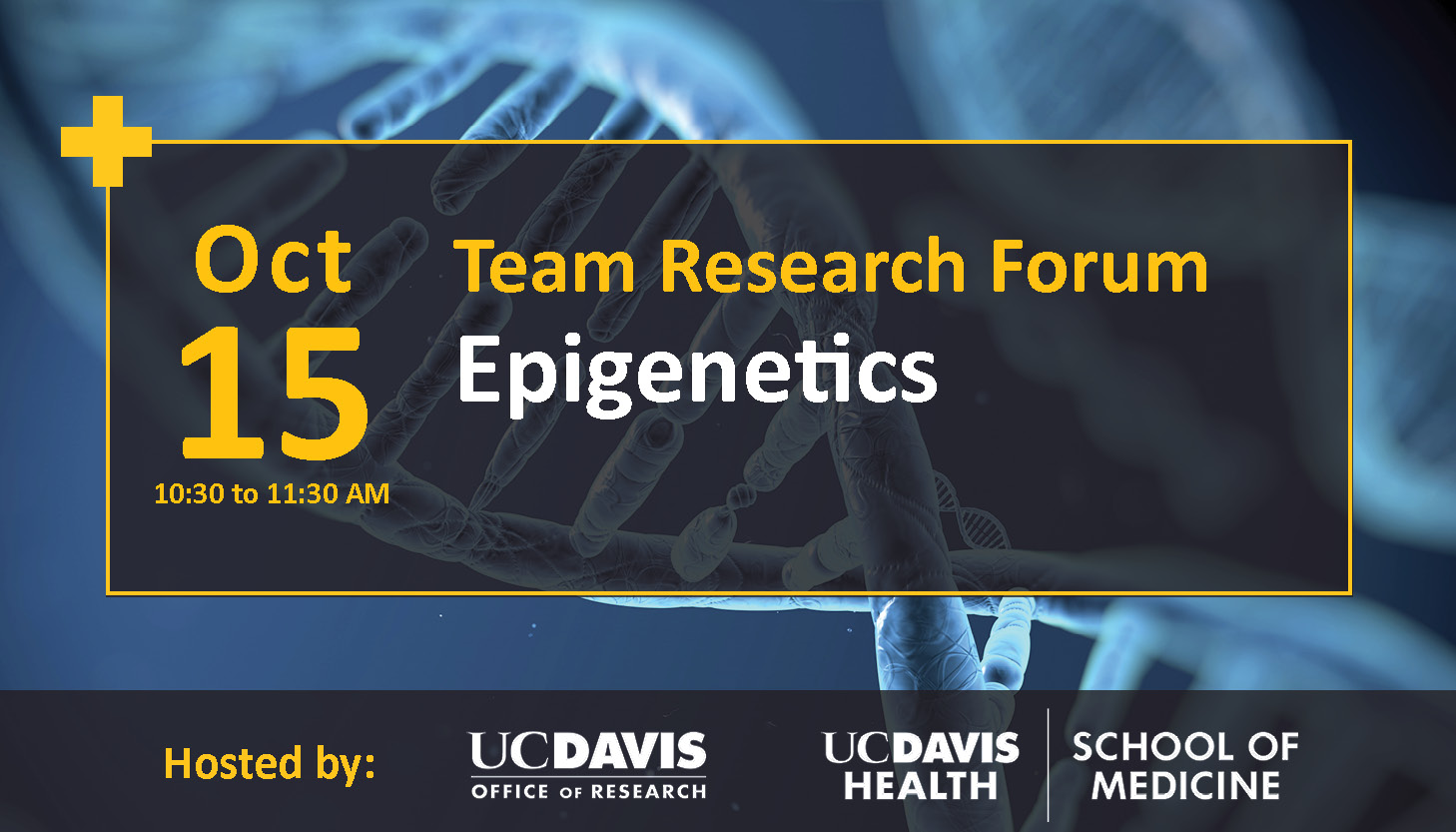Team Research Forum: Epigenetics
The UC Davis Office of Research and the UC Davis School of Medicine invite you to join this session with Dr. Hong Ji and Dr. Janine LaSalle for a discussion about the application of epigenetics to study the effects of environmental exposures (e.g. wildfire smoke) and material/perinatal health.
View Recording
Long-term epigenetic impact of wildfire smoke exposure
 Dr. Hong Ji
Dr. Hong Ji
Assistant Professor
Department of Anatomy, Physiology and Cell Biology
School of Veterinary Medicine
California National Primate Research Center
Wildfire smoke is responsible for around 20% of all particulate emissions in the U.S. and affects millions of people worldwide. Children are especially vulnerable, as ambient air pollution exposure during early childhood is associated with reduced lung function. In order to identify long-term baseline epigenetic changes associated with early-life exposure to wildfire smoke, we studied nasal epithelium samples from rhesus macaques that were exposed or not exposed to wildfire smoke during infancy. While we only found one gene that were differentially expressed, we identified many differences in DNA methylation. Many of these differences are located at genes involved in nervous and immune systems, as well as regions with chromatin state often found at developmental genes. Future studies will focus on understanding the underlying mechanism(s) and health impact of the wildfire-smoke associated epigenetic changes in rhesus macaques and in humans.
Multi-omic brain and behavioral correlates of cell-free fetal DNA methylation in macaque maternal obesity models
 Dr. Janine LaSalle
Dr. Janine LaSalle
Professor
Department of Medical Microbiology and Immunology
School of Medicine
Perinatal Origins of Disparities Center
Genome Center
Environmental Health Sciences Center
MIND Institute
Maternal obesity during pregnancy is associated with neurodevelopmental disorder (NDD) risk. We utilized integrative multi-omics to examine maternal obesity effects on offspring neurodevelopment in rhesus macaques by comparison to lean controls and two interventions. Differentially methylated regions (DMRs) from longitudinal maternal blood-derived cell-free fetal DNA (cffDNA) significantly overlapped with DMRs from infant brain. The DMRs were enriched for neurodevelopmental functions, methylation-sensitive developmental transcription factor motifs, and human NDD DMRs identified from brain and placenta. Brain and cffDNA methylation levels from a large region overlapping mir-663 correlated with maternal obesity, metabolic and immune markers, and infant behavior. A DUX4 hippocampal co-methylation network correlated with maternal obesity, infant behavior, infant hippocampal lipidomic and metabolomic profiles, and maternal blood measurements of DUX4 cffDNA methylation, cytokines, and metabolites. Ultimately, maternal obesity altered infant brain and behavior, and these differences were detectable in pregnancy through integrative analyses of cffDNA methylation with immune and metabolic biomarkers.







